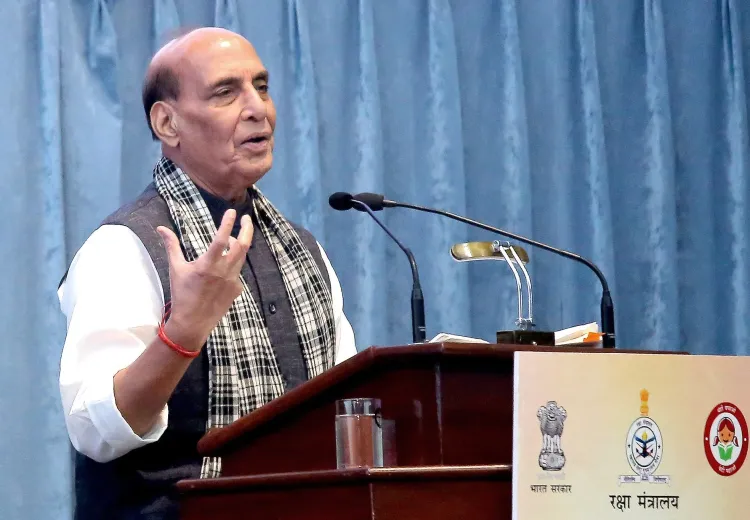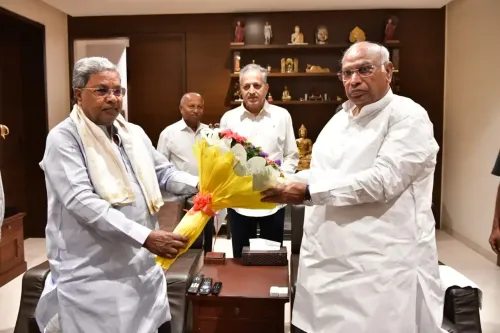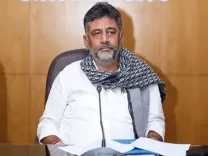What Contributed to the Success of Operation Sindoor?

Synopsis
Key Takeaways
- Back-end support is crucial for military operations.
- Improved civil-military synergy strengthens national security.
- A robust administrative system is essential for military strength.
- Continuous training and adaptation are necessary in modern warfare.
- Learning from past experiences enhances future military strategies.
New Delhi, Aug 1 (NationPress) The essential back-end support from various departments within the Ministry of Defence (MoD) was pivotal for the triumphant execution of Operation Sindoor, stated Defence Minister Rajnath Singh on Friday. He emphasized the necessity for enhanced civil-military synergy to strengthen the nation's security framework.
Speaking at the 84th Armed Forces Headquarters (AFHQ) Civilian Services Day event held at DRDO Bhawan, he remarked, “A war is not solely fought by the military; it involves the entire nation. In today’s fast-evolving security landscape, it is critical to adopt a dynamic and innovative approach while continuously adapting to new requirements.”
“There is no room for even the slightest oversight or error,” he emphasized, highlighting the significance of a unified national effort in warfare and the importance of learning from every conflict.
Rajnath Singh stressed that a strong administrative framework is vital for military strength, praising the AFHQ Civilian Services for their crucial contributions to enhancing the country’s security apparatus during both wartime and peacetime.
“The AFHQ Services function as the institutional memory for the MoD. They ensure consistency, expertise, and uniformity in administration, while playing a vital role in policy continuity and fostering civil-military cooperation. They are a cornerstone of a modern and integrated national defense architecture,” he noted.
The Defence Minister also highlighted the need for capacity development, urging AFHQ officials to evaluate and adopt the best practices from their peers in other ministries and nations regarding training and capability improvement.
“With emerging technologies, new challenges, and a shifting global landscape, training must evolve from a mere formal process to a continuous development cycle. Skills enhancement, ethical training, and behavioral excellence should be incorporated as fundamental components of training,” he stated.









